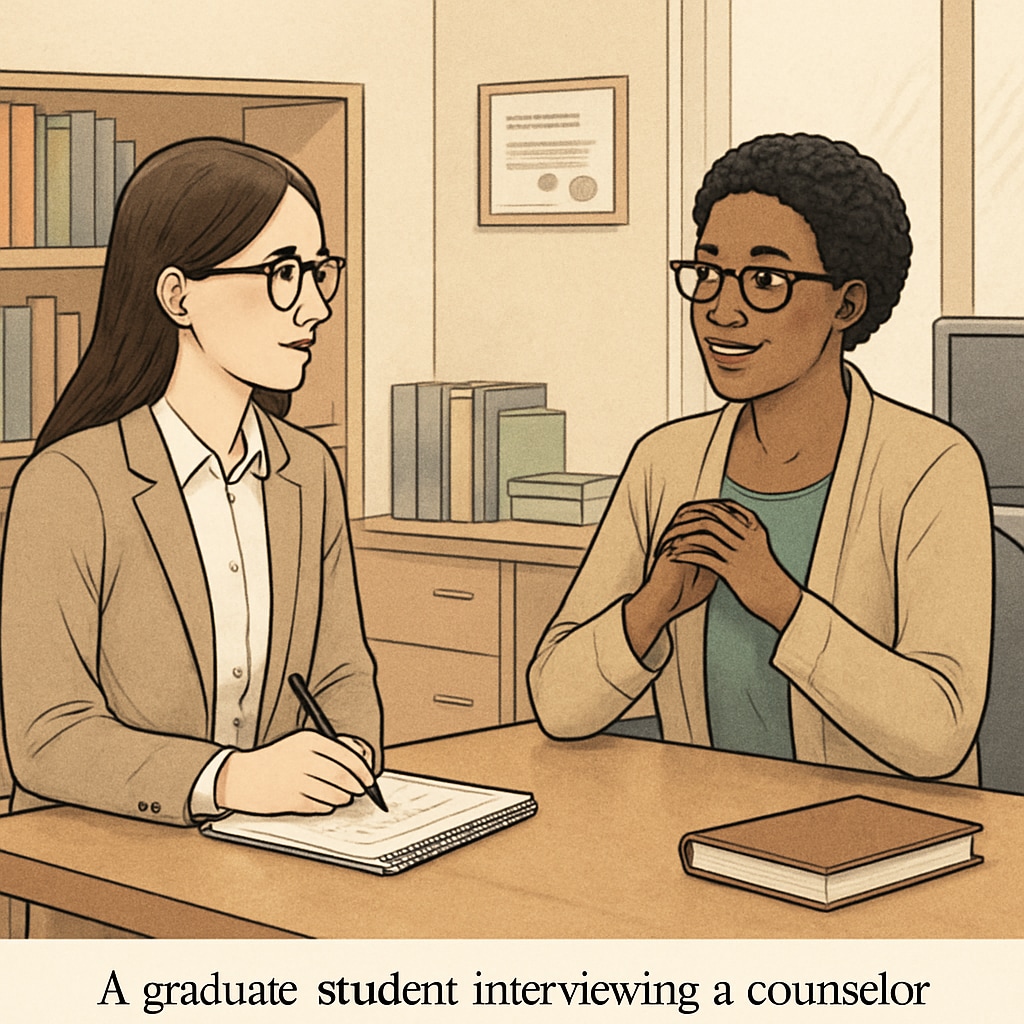Graduate students seeking to complete their research assignments often face challenges in finding and interviewing K12 school counselors. Understanding how to approach these professionals effectively is vital for producing high-quality academic work. This guide provides essential strategies for locating school counselors, establishing communication, and conducting interviews that yield valuable insights into the K12 counseling system.
Understanding the Role of K12 School Counselors
Before reaching out to a school counselor, it’s important to understand their role. K12 school counselors are key players in supporting students academically, socially, and emotionally. They work closely with teachers, parents, and administrators to ensure a safe and supportive environment for students. Having a clear grasp of their responsibilities will help you frame your questions effectively and communicate your research goals.

Finding K12 School Counselors: Practical Strategies
Locating school counselors can be challenging, especially if you do not have direct connections to local schools. However, several strategies can simplify the process:
- Contact school administration: Reach out to school administrators or district offices to inquire about counselor availability.
- Leverage professional networks: Use educational organizations or social media platforms like LinkedIn to connect with counselors.
- Attend local events: Community events and school board meetings can be excellent opportunities to meet school staff, including counselors.
- Use online directories: Websites like American School Counselor Association often provide directories of professionals in the field.
Remember to approach these interactions professionally, clearly stating your research objectives and the purpose of the interview.
Effective Communication: Building Rapport with Counselors
Once you’ve identified potential candidates, the next step is to establish communication. The way you present yourself and your research can greatly influence their willingness to participate. Follow these tips:
- Personalize your outreach: Address counselors by name and tailor your message to reflect your understanding of their role.
- Be transparent: Clearly explain your research goals, how the interview will be conducted, and how their insights will be used.
- Respect their time: Offer flexible scheduling options and keep interviews concise.
- Express gratitude: Show appreciation for their willingness to share their expertise.
Building rapport is crucial for creating a comfortable environment where counselors feel valued and respected.

Professional Interview Techniques for Graduate Research
Conducting a successful interview requires preparation and professionalism. Use the following techniques to ensure meaningful conversations:
- Prepare focused questions: Develop open-ended questions that encourage counselors to share detailed insights.
- Use active listening: Show genuine interest in their responses and ask follow-up questions to delve deeper.
- Record the interview: With their permission, record the session for accurate data collection and analysis.
- Stay neutral: Avoid leading questions or making assumptions about their experiences.
Additionally, familiarize yourself with ethical guidelines for interviews, such as obtaining informed consent and ensuring confidentiality.
Final Thoughts: The Value of K12 Counselors in Academic Research
Interviewing K12 school counselors provides graduate students with a deeper understanding of the educational and emotional support systems within schools. By using the strategies outlined above, you can establish meaningful connections with these professionals and gain valuable insights for your research. Remember to approach the process with professionalism, empathy, and respect for their expertise and time.
For further information on school counseling, visit the American School Counselor Association or explore related articles on education systems on Britannica.
Readability guidance: Use short paragraphs and bullet points to summarize key ideas. Incorporate transition words for smooth flow. Ensure a balance between academic tone and accessibility.


